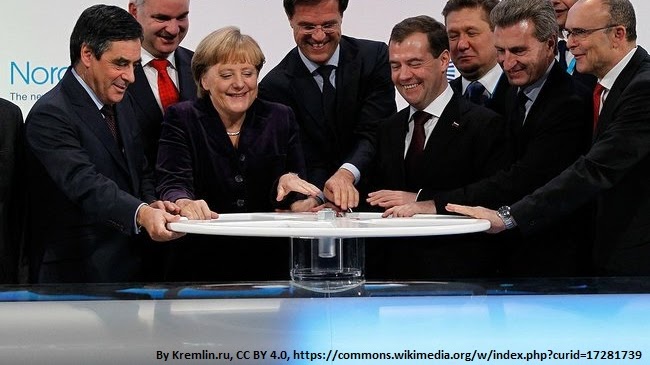Since the start of Russia’s illegal invasion of Ukraine, the European Union (EU) has paid over €63bn to Russia for fossil fuels (source). In the same period, the EU has provided Ukraine with only €1.5bn in military support, pledging only another €500 million at the end of May 2022 (source). The EU is therefore funding Russia’s war machine and giving Ukraine minimal resources to defend itself. It is time for the EU to prioritise its values over its economic relationship with Russia. Russia illegally annexed Crimea and attempted a full-scale invasion of Ukraine. It committed war crimes and crimes against humanity in Ukraine. What will it take for the EU to finally stop funding Russia’s illegal invasion?
For decades, the EU and the West have convinced states like Ukraine to strengthen their democracies. The EU and the North Atlantic Treaty Organisation (NATO) have used the offer of potential membership to encourage countries to adopt a Western path, Western values, democracy and the rule of law. Countries like Ukraine have done exactly that. However, now under attack by Russia for, amongst other reasons, pursuing an EU and NATO path, the EU’s support is less than satisfactory. We have seen EU member states, such as Germany, being reluctant to take concrete steps to punish Russia for its crimes, prioritising its economic dependency on Russia over the lives of the Ukrainian people. Unless Russia is severely punished, through economic sanctions, for its invasion of Ukraine, other countries will soon be next. The sanctions imposed on Russia following its occupation and illegal annexation of Crimea were minimal. Moreover, following Russia’s actions in Crimea, Germany continued pursuing the construction of the Nord Stream 2 pipeline, ensuring the transport of Russian gas directly from Russia into Germany through a system of pipelines under the Baltic Sea. In fact, it imported more gas than ever before. Germany effectively ignored Russia’s illegal annexation of Crimea and opted to send more money into Putin’s war chest. Against this background, Putin felt that he can achieve more without real consequences, and decided to further encroach on the sovereign territory of a democratic state. While the invasion of Ukraine is the most recent example, Russia’s invasion of Georgia in 2008 cannot be forgotten either. A pattern can be observed: Russia invades and the EU does not react proportionally, prioritising economic growth over defending democracies and international law. Simply put, the EU does not do enough to stop Russia’s despicable war crimes and crimes against humanity.
So, what will it take for the EU to finally stop funding Russia’s illegal invasion? Does Russia need to threaten more countries or actually invade yet another country? Or does it need to resort to chemical or biological weapons? The answer is unclear. It is only clear that the EU will tolerate a lot to protect its economy.
We call for the implementation of an immediate fossil fuel embargo to be placed on Russia and a significant increase in military assistance for Ukraine, including heavy weapons. Germany is one of the key countries that has been reluctant to place immediate far-reaching sanctions on Russia. The German government and industry warn of the threat of “mass unemployment”, the “end of the national economy” or “devastation and upheaval”. However, for Alexander Kriwoluzky, macroeconomist at the German Institute for Economic Research, recently stated that such statements are a form of “scaremongering that cannot be proven”. A joint analysis of leading economic research institutes in Germany, which was prepared on behalf of the German Ministry of Economic Affairs, predicts German economic output to decline by only 2.2% in 2023 if there were an immediate energy embargo (source).
Slowly moving away from Russia’s fossil fuels only plays to Putin’s advantage, as it provides him with the time to find other markets. The EU’s current strategy of gradually moving away from Russia’s fossil fuels and towards renewable energy is not enough. The reality of this plan of action is clear: the EU will continue sending euros to Russia, thus helping to fund Putin’s crimes, while also giving him enough time to find an alternative market. Yes, an immediate embargo on Russian energy would affect people in Europe and have an impact on our economies. However, as seen with the case of Germany, the economic impact would not be anywhere near as disruptive as some claim. Not pumping money into Russias war chest is the least that should be done, considering that the Ukrainian people are defending the freedom and democracy of not only their own country but also of Europe, and this at a huge sacrifice.
Valeria Borta,
Co-founder and Executive Director
International Association for Democracy


